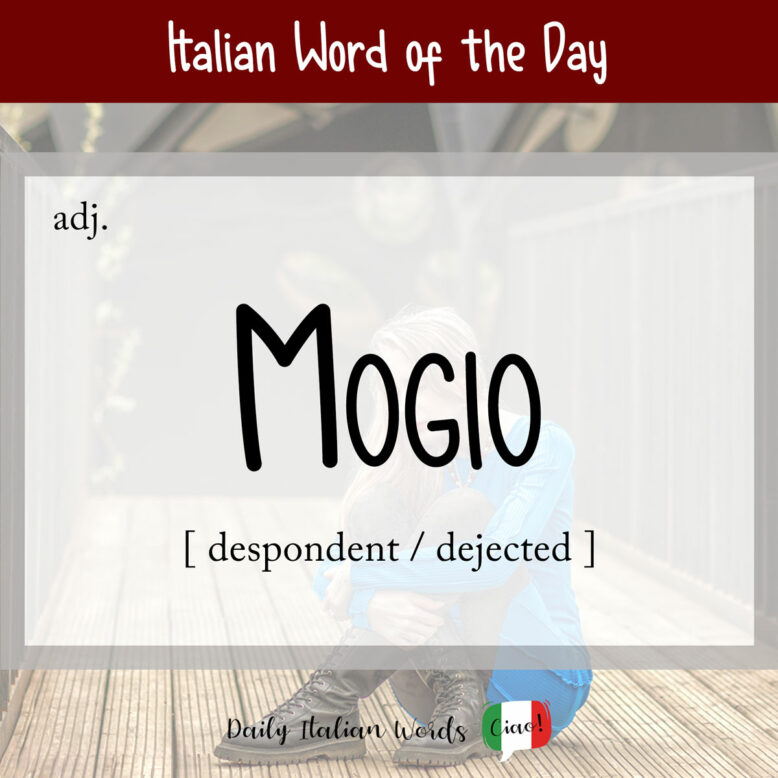Some words perfectly capture the essence of the concept they describe, and the Italian adjective mogio is a great example. It can be translated as despondent, dispirited, or dejected, among other terms.
mogio
despondent / dispirited / dejected

Mogio most likely derives from the Venetian mògio (wet) which, in turn, comes from the Latin mollior, the comparative of mollis meaning soft.
The feminine singular form is mogia, and there are two accepted feminine plural forms: mogie and moge. The masculine plural form is mogi.
You can pair the adjective with the verb rendere, which means to make or to render. You can also use it to describe a person directly, as in una persona mogia (a depressed person).
Il brutto tempo mi rende mogio.
The bad weather gets me down.

To add extra emphasis, mogio is often repeated twice – mogio mogio.
Il bambino tornò a casa mogio mogio dopo aver perso la partita.
The child came home looking dejected after losing the game.
In addition to describing people who appear down or depressed, mogio can also be used to describe an animal that doesn’t look very well.
Heather Broster is a graduate with honours in linguistics from the University of Western Ontario. She is an aspiring polyglot, proficient in English and Italian, as well as Japanese, Welsh, and French to varying degrees of fluency. Originally from Toronto, Heather has resided in various countries, notably Italy for a period of six years. Her primary focus lies in the fields of language acquisition, education, and bilingual instruction.


